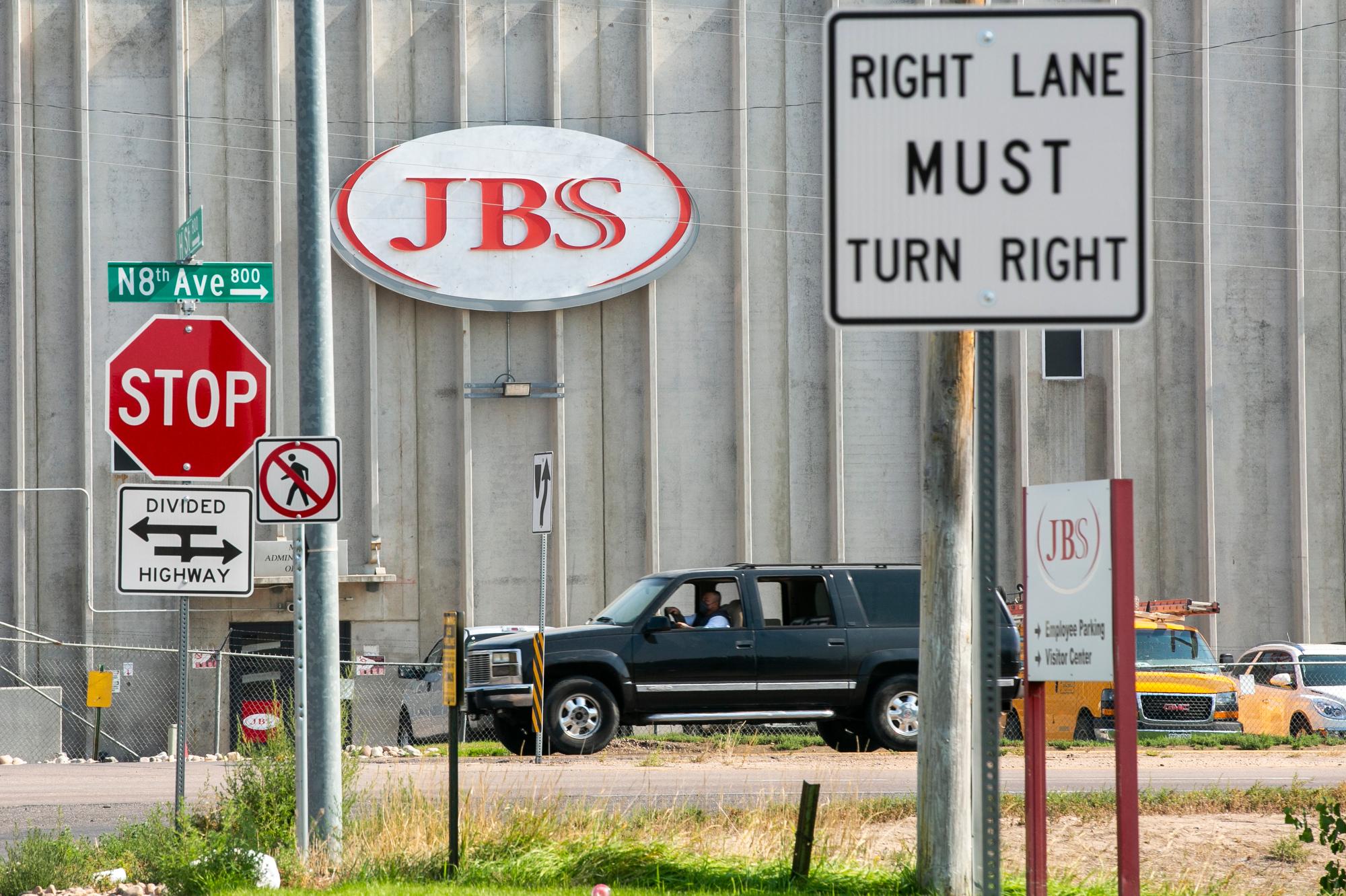
Updated at 1:20 p.m. on Friday, Sept. 27, 2024
Workers at the JBS meatpacking plant in Greeley, Colorado are painting a picture of dangerous working conditions, unfair treatment, wage theft, and a lack of reimbursement for workplace injuries.
President of the United Food and Commercial Workers Local 7, Kim Cordova, said it all began last fall when JBS began hiring asylum seekers and legal immigrants from Haiti and Benin.
“We’ve been calling out anybody who can help these workers who are being exploited in what we believe is significant human trafficking,” Cordova told CPR News.
UFCW asked local, state and federal officials earlier this week to investigate conditions at the plant. The union is once again alleging a pattern of abusive practices at the site. Those include claims that management engaged in human trafficking through the social media app TikTok. They also accuse management of intimidating workers, inhumane living conditions and withholding mail from employees such as medical bills.
The most recent allegations against the company were first reported by The Wall Street Journal.
According to the union, the latest alleged abuses began when JBS HR manager Edmond Ebah, originally from Africa himself and a former union member, started facilitating the recruitment of workers via TikTok. Once applicants secured positions at the plant through their visas, Ebah helped them make the transition to the United States, offering them a free room for the first two weeks of their stay until they could get through orientation and start earning a wage.
However, once they arrived in Colorado, the picture of a bright future in a beautiful town was not as promised.
Workers say Ebah charged them as much as $320 to pick them up from the airport and drop them off at the Rainbow Motel near the plant.
“Workers were reporting that if they didn't want to pay these fees… they were being threatened,” Cordova said.
At the motel, conditions were unlivable, with as many as eight people staying in rooms with only one bed. Later, many workers were moved to a home where as many as 40 people were living at one time. All were either workers at the plant or family members, including women and young children.
“Any allegations of poor living conditions are unacceptable and upsetting,” said Nicki Richardson, JBS USA’s head of communications, in a statement to CPR News.
Richardson noted the person making the TikTok recruiting videos, Mackenson Remy, has never been a JBS employee. She said JBS banned Remy from the Greeley facility when it learned about the allegations and notified local authorities.
However, Ebah, who workers allege has been collecting transportation and housing fees from them, still works for JBS, union officials said. Richardson confirmed Ebah still works for the company at another Colorado facility, but an internal investigation "found no evidence of wrongdoing."
"He has no recruiting responsibilities, which was also the case with his previous role at Greeley beef," Richardson said.
Workers who spoke to CPR News requested they remain anonymous due to fears of retaliation. They spoke through Tchelly Moise, a union rep who works at the Greely plant who translated.
“When I came to work, I wasn't expecting to find such bad living conditions,” one worker said. “We couldn't do anything about it because we didn't have money and we don't know anything about the city.”
“What I would hope is,” the worker said. “Social service — or whoever's in charge of stuff like that — to ask JBS ‘Who is supposed to get better living conditions? Us or the cows we are killing?’”
Several workers, who do not speak English, say they were unable to eat for days at a time because of their crowded living conditions. They also weren’t able to shower, which made the crowded house smell like the meatpacking plant itself.
Additionally, workers claim they are being forced to work in extremely cold conditions at the plant and at speeds so high some said their hands swell up.
“When I'm pulling one piece of meat to work on it, there's already another one coming,” a worker said. “So, since I'm working so fast, most of the time my hands are swelling and I have pain in my hand.”
The recommended speed for a line at a beef packing plant is 390 head of cattle per hour, according to the Food Safety and Inspection Service. But union representative Dahir Omar says they’re moving much faster.
“I have been a rep for 10 years. Never in my life have I seen line speeds like this. This year they have been 430, 425, 420,” Dahir Omar, another union rep, said.
“We definitely feel like they're being taken advantage of,” Moise said.
- Colorado Leads Nation For Most COVID-19 Deaths Connected To Meat Processing Plants, Sixth Greeley JBS Employee Dies
- Hundreds Of Meatpacking Employees Will Receive Money From JBS In A Discrimination Lawsuit
- ‘We Don’t Want Other People to Suffer’: JBS Families Wait, Fight And Hope For Accountability
- JBS And Greeley Nursing Home Report New Coronavirus Outbreaks









